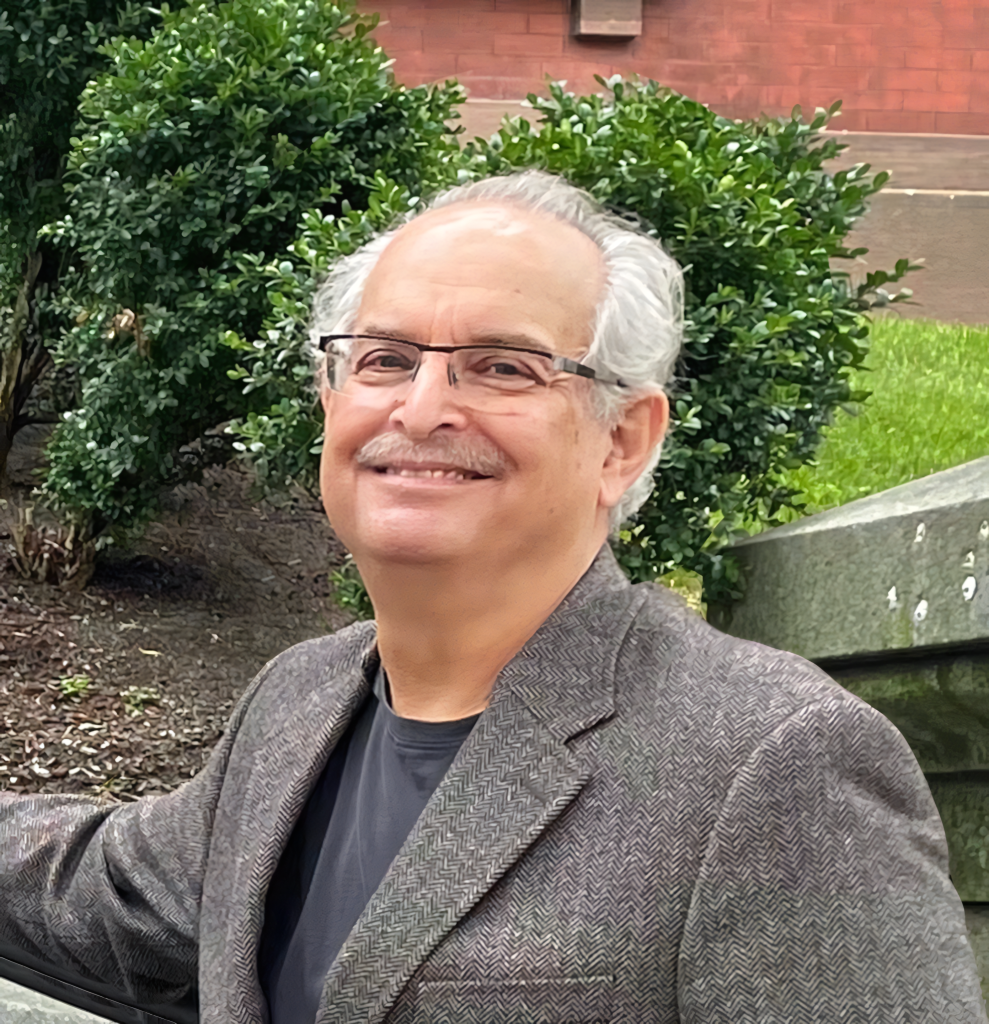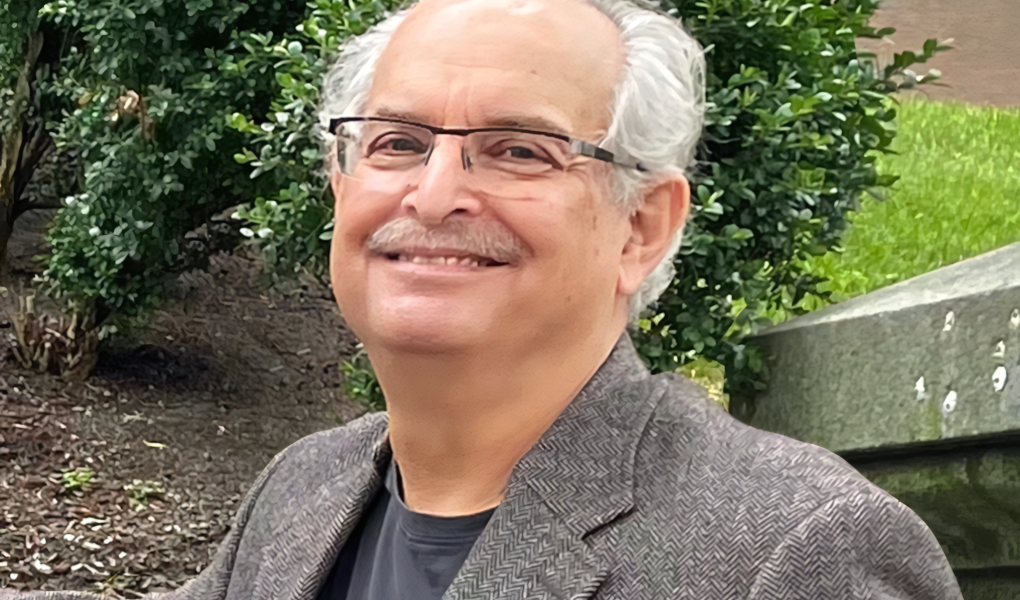
Professor Paul Guyer is one of the world’s foremost scholars of Immanuel Kant and aesthetics, having worked primarily on the philosophy relevant to the work of Kant for over 50 years across 13 published books and hundreds of journal articles. He is the general co-editor of the Cambridge Edition of Kant’s works and the co-translator of the Critique of Pure Reason, the Critique of the Power of Judgment, and Notes and Fragments. Since 2012, Paul Guyer has been the Jonathan Nelson Professor of Philosophy and Humanities at Brown University. He received his Ph.D. from Harvard in 1974 and has since taught at the University of Pittsburgh, the University of Illinois-Chicago, and the University of Pennsylvania. He has also been a visiting professor at Michigan, Princeton, and Harvard. In this interview, we discuss Kant’s moral philosophy, Kant’s legacy, and Guyer’s experiences in formal education and academia.
*This interview was conducted jointly by Anastasia Guo ’23 and Kristoffer Balintona ’24. Anastasia is an honors track undergraduate religious studies and philosophy concentrator aspiring to a PhD in philosophy and/or religious studies. Kristoffer is a philosophy concentrator and the Editor in Chief of Brown Interviews. Anastasia and Kristoffer engaged Professor Guyer for an interview because of their shared interest in Kantian ethics.
Kristoffer Balintona: I was surprised to learn that you had intended to become an architecture major when you first got into college. What motivated your choice to go with philosophy?
Professor Paul Guyer: Yes, I did go into college thinking I was going to do architecture, but I didn’t want to go straight into it because I wanted a real liberal arts education first. I had to sign up for math and physics courses in my first year in order to go into architecture. Even though in high school I had been the best math and physics student, I was only qualified for the lowest level of first-year math courses. My math class had this young assistant professor who must have just proven some great theory to get appointed, but he couldn’t teach his way out of a paper bag. He talked to the blackboard the whole semester and gave us the most difficult calculus textbook that there was, but didn’t tell us what to do with it. I barely got through that.
Meanwhile, in my first-year humanities courses, I had two fantastic philosophy professors. In my first semester, I had a relatively conventional course on ancient philosophy. Then in my second semester, I had a class taught by Stanley Cavell that was a much less conventional tour through various modern philosophers and other kinds of thinkers. I actually continued to study with Cavell. Anyway, I became quite enraptured. So that was the end of architecture and the beginning of philosophy.
KB: Did you have any experience with philosophy before college?
I went to a very ordinary, small public high school in Long Island right outside of New York City that had no philosophy classes. I did, however, attend a sort of egghead club outside of school where we read things like Freud’s Civilization and Its Discontents, Kafka, and various philosophically inflected works of social commentary of the 1960s. So I was quite primed by the time I got to college. But also, in the summer after 11th grade, I went to a summer program like those sponsored by the National Science Foundation where I was taught six weeks of philosophy by a college professor. The program was aimed at high school students; it was like a tour. We spent one week on analytic philosophy, one week on Existentialism, one week on Marxist philosophy, one week on ancient philosophy, which was the professor’s specialty, and perhaps even one week on Chinese philosophy. That increased my appetite for philosophy.
I also remember, either in the 10th or 11th grade, that I had an assignment from the English teacher to find a book of essays, write a book report, then give an oral presentation to the class. I happened to be at a museum in Manhattan. I was in the Long Island Railroad level of Penn Station, which had a bookstore in those days. There was a wire rack with cheap paperbacks on it and one of them had the title, Essays Concerning Human Understanding by David Hume. I took it and started reading on the train ride back, which was only half-hour, so I didn’t get very far, but I was quite entranced and puzzled. Here’s this guy casting doubt on what he himself recognizes to be the most fundamental feature of human thought, namely, causal inference—and that’s obviously crazy. But his arguments seemed pretty good, which made it challenging. I went and talked about it to the other students, and they thought that I was completely crazy. The teacher thought I was crazy too. But I found it fascinating.
Anastasia Guo: Can you tell us more about your undergraduate experience in philosophy? Do you have any interesting stories about your professors?
I really became involved with philosophy in my Sophomore year. In the fall of that year, I took a course on freedom of the will, which was taught by a quite well-known philosopher and American intellectual historian called Morton White. He had been involved with Quine and Nelson Goodman in the 1950s on the attack on the analytic-synthetic distinction, often called the Quine-White attack on the analytic-synthetic distinction. I also remember that Robert Nozick, who was at that point a very young assistant professor, gave a standard “problems in philosophy” class, using texts mostly from relatively recent analytic philosophy. Similarly, in the spring Nozick offered a course on the Critique of Pure Reason by Kant. By that time I had learned enough philosophy to know that I needed to do that. A sort of bouncy, very informal guy, he started this class off by telling us there hadn’t been a course on the Critique of Pure Reason at Harvard for a dozen years since the great C. I. Lewis retired in 1953. He said that it was about time there was one — and that since he had never studied Kant before, this would be a good way for him to learn it!
Nozick was phenomenal. He is one of the fastest thinkers, readers, and learners I’ve ever met. For example, at that time, there were several older English commentaries on the Critique of Pure Reason, some of which we still read, from authors like Norman Kemp Smith and H. J. Paton in the 1920s and 30s. Moreover, books on the Critique of Pure Reason by Peter Strawson and Jonathan Bennett had just appeared a few months prior, which really initiated a revival of interest in Kantian analytic philosophy. Nozick had obviously read all that—probably over Christmas vacation before the course began.
I also have a funny anecdote about that class. In 1990, Patricia Kitcher published Kant’s Transcendental Psychology. In the introduction to the chapter on the Transcendental Deduction, she writes something like this: “Now, this part of the text is so difficult that once a famous Harvard professor canceled his class for two weeks while he tried to figure it out. Then, after two weeks, he came back and resumed the class.” Well, Pat, now a dear friend of mine, had only heard some version of the story from somebody else—and she got it wrong. First of all, it wasn’t a famous Harvard professor, or, to be more precise, it wasn’t a Harvard professor who was famous yet. It was Robert Nozick as a brand new assistant professor. And it wasn’t two weeks; it was one week.
He came in on Tuesday and said, “I haven’t figured this part out yet. Go home and come back next week and I will have something to say.” We did, and he came back the next week with as beautiful an interpretation of the Transcendental Deduction as anyone had at that time, including Kemp Smith, Peter Strawson, and Jonathan Bennett. It was beautiful. That course had a deep influence on me. It transformed me into a Kant scholar because I just wanted to figure it out.
KB: What was behind your decision to become a philosophy professor?
Well, sometimes it’s more of a choice, and sometimes it’s less of a choice. I would say it’s certainly not like any 18 to 24-year-old sits thinking, “I want to be a college or university professor. Now, what subject shall I profess?” No, it goes the other way around: you become passionate about a subject, and then at some point, you realize that the way to keep involved with the subject is to become a professor. Sometimes, though, some of those people may decide at a certain point that they care more about college and university institutions and the kinds of work that they could do to help people in the institutions than they care more about their particular subject, and so they become administrators. Different people take different career paths and even within academia you still have choices to make, but the basic thing is that the subject chooses you. That being said, I’m having quite a good time teaching right now, and I would have said that when I first began teaching.
HG: What have been some of your favorite moments in teaching?
There are at least three parts to the life of a professor at a research university: teaching undergraduates, mentoring and advising graduate students, and one’s own research and professional publications and conferences. As far as graduate students are concerned, I’ve been fortunate to have had many Ph.D. students, and quite a few truly outstanding Ph.D. students. The best part of mentoring Ph.D. students is when they argue with you. I will have students who will write dissertations that differ from me on some important points or will try to defend an alternative interpretation. Watching students really develop their own line of thinking is the most rewarding part of teaching graduate students.
Though, in general, my favorite moments are when it looks like students are really understanding the material. For instance, two years ago I was teaching the Critique of Pure Reason. The students were getting it and asking excellent questions, and we were having genuine discussions. That was as much fun as I ever had to teach the Critique of Pure Reason. Though, of course, the pandemic struck in the middle of that semester, so we had to switch from in-person teaching to teaching online in Zoom. We weren’t used to it yet, so it wasn’t quite so much fun after that. I like to think that after 50 years of teaching I’m really just learning how to do it, and in some ways, it’s too bad that I won’t do it that much longer.
HG: One thing that really struck me about Kant is the often unsuccessful yet sincere efforts he put in to explain everything. It feels like he is writing for the student.
Well, he was one of the first major modern philosophers who was a professor. Before that, you had people like Descartes, Leibniz, Locke, and Hobbes who were sort of independent researchers, diplomats, or courtiers supported by princely households. Whatever it was that they were doing, they weren’t trying to explain their views to young people. On the other hand, Kant was a university professor at a time when students entering the university might be only fifteen or sixteen years old. So he spent a lot of time and effort trying to explain his views. Now, he didn’t think that a book like the Critique of Pure Reason was for his students immediately—it was for other philosophers—but he certainly had them in mind.
HG: Given how Kant’s views evolved significantly over his lifetime, have your interpretations of him changed over these fifty years?
Well, my views have certainly evolved and become more refined in certain ways, but in certain general ways, it seems to me that I got something more or less right early on. I haven’t changed my views that much—maybe that’s somewhat stubborn or pigheaded. There’s also the point that once you’ve published something there’s always a certain tendency to kind of dig in your heels and stick with it.
I will say this: my first book, Kant and the Claims of Taste (1979), which was based on my Ph.D. dissertation, was about Kant’s aesthetics. The way I like to put it is that when I rewrote the thesis for the book my conclusions remained basically the same, but not one word of the text remained the same. It probably would have been better if I had waited a few more years and rewritten it yet again. There were certain things about the framing of my ideas that I changed my mind about, and I like to think that I’ve put some of my basic ideas better in subsequent writings and focused on various issues that I didn’t focus on very much. Nevertheless, I stand by that book.
HG: As a historian of philosophy who is occupying this very crucial point in history, what do you think of later philosophers’ interpretations of Kant?
It’s funny that you should ask that question since I have just finished a large manuscript on the impact of Kant’s moral philosophy on the subsequent history of philosophy. It covers figures from the immediate reception of Kant, the first book reviews of Kant in 1786, to John Rawls.
The gist of it is the following: some philosophers didn’t quite get what Kant was up to. They thought that Kant’s conception of morality was all about acting in accordance with the moral law because that is somehow intrinsically necessary according to rationality. On the other hand, there were philosophers who did understand Kant: acting in accordance with the moral law is the way that we most fully realize freedom, both individually and collectively. Individually in the sense that it’s acting in accordance with law by means in which we elevate ourselves above mere impulse and inclination, and collectively in the sense that it’s only by acting in accordance with the law that we can preserve and promote the greatest freedom possible for all, though that formulation takes different forms, in different figures. I think that some early readers of Kant such as Friedrich Schiller got it, whereas other early readers of Kant such as Hegel and Schopenhauer didn’t really get it.
KB: Going beyond his historical contributions, what would you take to be the major ways in which Kant is relevant today?
A Kantian approach in the most general terms regards knowledge as the product of the interaction between the subject and the object, that knowledge is the result of the interaction between cognitive structures—ways of organizing inputs that are inherent to our minds—and sensory input. I think that this is basic to contemporary cognitive science, even if these inherent dispositions of the human mind are regarded as evolved.
As far as the practical sphere goes, Kant’s clear insight that freedom is the fundamental value, the freedom of everybody, not just one’s own freedom, is absolutely fundamental to any coherent society and regime. It’s so basic that you feel like an idiot when you have to state it, but many people don’t realize it. So I think it’s of tremendous importance to keep pushing that message in all kinds of formats and in contemporary philosophy.
KB: I know you’ve been working primarily on Kant’s moral philosophy in the last few decades. What has kept you drawn to his moral philosophy?
The fact that Kant founded his moral philosophy on the idea that freedom is our highest value, and that, in some ways, we care and should care more about being able to make our own choices than what it is we actually choose. Kant had the profound insight that, if the freedom of everyone is equally valuable, then everyone has to figure out how to exercise their own freedom without infringing upon the freedom of others. You have all these agents who wish to set their own ends, and there’s one or some set of ways that will allow each of them to do it. This is a problem of coordination; we have to collectively figure out what sacrifices of freedom each needs to make so that all may have the greatest possible freedom. It’s like a mathematical problem. It involves the realization and acceptance of some constraints: freedom must be treated as an end for everyone, not just oneself. How can my freedom be exercised in a way that is compatible with the equally free exercise of the ability for all others, in principle, to set their own ends?
This seems like such a basic idea, but it’s an idea that many people now do not seem to be getting. For instance, some say that having to take a vaccine would be an injury to their own freedom and that this is a reason not to be vaccinated. This is true when considered in isolation. However, in reality, their refusal to take it is an infringement upon the freedom of many, many other people. In Kant’s terms, they seem to take an interest in their own existence as an end in itself based on this purely subjective ground without recognizing that the same applies to others too.
I think this is a very simple and very true idea. It seems as obvious as the nose on anyone’s face that my freedom is equally valuable to your freedom and your freedom as valuable as mine. Some people say Kant got some of this idea from Rousseau, but I don’t think anyone formulated it as clearly before Kant as Kant did.
I’m very passionate about the idea that human beings are capable of setting their own ends, and that morality involves treating each and every human being as capable of setting his or her own ends, which, of course, is only done rationally, insofar as they have means to ends that they can set for themselves. I never liked being bossed around. I always liked the idea of getting to choose my own path. We can throw away Kant’s aesthetics, we can throw away the Critique of Pure Reason, and we can even throw away Kant’s theory of the freedom of the will because this isn’t really about the metaphysical issue of freedom of the will, this is about freedom of action. We can throw all that stuff away as long as we keep this core of Kant’s moral philosophy. After many, many years of studying Kant, it’s the thing I take away from him more than anything else.
KB: You’ve been expressing that Kant’s core ideas are simple. Why do you think his simple ideas aren’t widespread or intuitive by now?
First, most people don’t read Kant, and Kant is not easy to read either. It also seems to me that the underlying idea of Kant is really quite simple, but it’s got an awful lot of gift wrapping on it, so you have to work hard to read it over and study it for many years. Sometimes the simplest thing is the hardest thing to see.
This is especially the case because Kant was writing within an academic tradition. There are all kinds of language, conceptual framework, imagery, and examples that he used, thinking that they’re completely obvious—but they’re not obvious, they’re context-influenced. And even this context is unfamiliar to almost everybody. Even the number of German professors who read the actual background to Kant’s moral and political thought is tiny. I mean, you have the same thing in the current institutions. Winston Churchill famously said at some point, probably after World War II, that the British and Americans were two peoples divided by a common language. For much of the last 40 years, that’s been true about British and American philosophy. They use the same language, but there are certain debates and just ways of speaking that are internal to Oxford and people influenced by Oxford. Likewise, there are certain debates internal to various constellations of American philosophers in American philosophy departments. So these things, on the one hand, were aimed at concepts and principles that ought to be universal. On the other hand, it takes place within very specific contexts and very specific uses of language, so it’s not always easy.
That’s one point. Another point, a point which Kant himself was on to, is that egoism too easily gets in the way. People have the capacity to be moral in some abstract way, that is, everybody knows what morality requires, yet people also have self-love. It’s very easy for people to be carried away by self-love. It’s the thing that Kant is worried about more than anything else. In Religion Within the Boundaries of Mere Reason, Kant says very clearly that there are two possibilities for your fundamental choice in life. You could choose to subordinate self-love to morality, to act on self-love only when it is consistent with the rest of morality and the rest of your obligations, or you could choose to subordinate morality to self-love. This also comes out clearly at the end of the first section of the Groundwork to the Metaphysics of Morals: people pervert their conception of morality out of self-love—they try and twist what they know morality is so that it approves of self-love.
I’ll give the example of Utilitarianism, which Kant was concerned about in the form in which he knew it. Kant didn’t need Jeremy Bentham, John Stuart Mill, or 20th-century Utilitarians like Richard Brand, or economists. It was already formulated clearly enough in Francis Hutcheson. Utilitarianism is not an intrinsically egoistic doctrine, but as soon as you say morality is about the pursuit of happiness or the maximization of happiness, it’s all too intellectually easy for people to equate that with the maximization of their own happiness.
HG: Kant’s philosophy tends to converge toward universalism whereas later thinkers often either disagree or digress to various degrees. What do you think drives Kant in that direction?
If you just step back and think about Kant’s epistemology and moral philosophy, Kant argues that human theoretical and practical thought has certain fundamental universals, in spite of surface differences: the forms of space and time, causality, and substantiality. This runs against the grain of a lot of 20th-century thought, but also cultural relativism going back to Johann Gottfried von Herder in the 18th century, Kant’s own student. This is the idea that the culture and languages by which people grow up embed fundamentally different ways of thought. In linguistics that’s the famous Sapir-Whorf Hypothesis, that people’s ways of seeing the world are essentially determined by language.
Kant is arguing that, in spite of all that, there are deep commonalities at the deeper levels of thought. Noam Chomsky argues for that about language too. And, of course, unlike Plato, Kant doesn’t do this using some kind of strange ontology. He doesn’t hold that there are forms off in some space or some other world. Instead, there are certain basic ways of thinking essentially hardwired into the human species. This can be appealing to people who either feel isolated by their language, hampered in their relations with others in the world from their language, or interested that others come to their way of thinking.
KB: There are many students of philosophy all over the world, including those who study Kant. Do you have anything to say to them?
I think the significance of philosophy for students all over the world is that philosophy at its best is concerned with discovering what can be known about what we should believe and how we should act by unaided reason. It shouldn’t depend upon any kind of revelation. It doesn’t depend on any privileged access to the truth. It doesn’t depend on any knowledge that is accessible only to one culture and not to others. It is relying on human reason itself. At least that’s the ideal. That’s the ground on which philosophy ought to stake its ground. Kant himself, of course, is a classical proponent of such a view.
Now, this presupposes that there is such a thing as reason that is common to all human beings. And, of course, people can argue with that. Some people think that it’s not possible to think outside the limits of a certain culture, that there is nothing that is culturally independent. But if somebody tries to argue for this view against someone else who doesn’t accept their view, they must be assuming that there are some common standards of argumentation. If they think they can persuade another person of their view, as opposed to beating them up until they say, “Uncle,” they must be assuming that there is some way in which what they’re saying can be intelligible to people coming from a different place, that there is some common ground on which the argument can be decided.
I think that if you boil down good philosophical ideas to their core, or you burn away the fat, or you strip them of idiosyncratic language, you get down to Kant’s or Rawl’s’ idea that the essence of morality is treating everyone as equally free beings. That’s all there is to it. I believe there is a way of saying that in every language. I only know German, I can read a little French, a little Spanish, a tiny bit of Portuguese, I can make out a bit of Latin—I don’t know very many languages. But I know that in all those languages, you could say it, and I’m pretty sure you could say it in any other human language. Of course, how people express that idea is going to vary tremendously, whether they accept it will vary tremendously, and how they might apply it will vary tremendously, but it does seem to me that the philosophical idea is clear enough: there is a way to say it. Maybe that’s naive.
*This interview has been edited for length and clarity.




